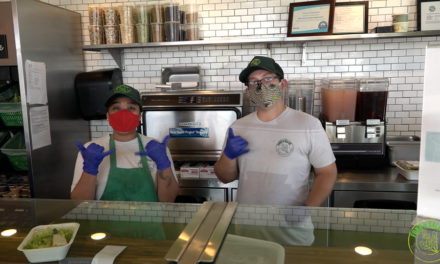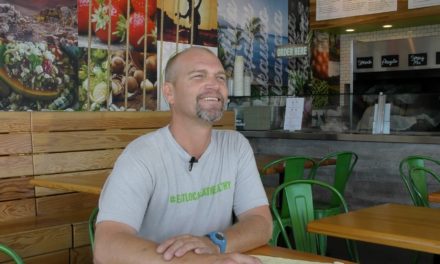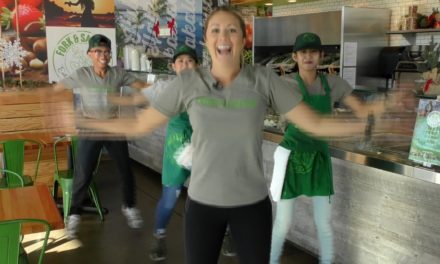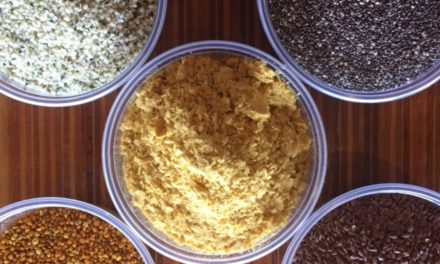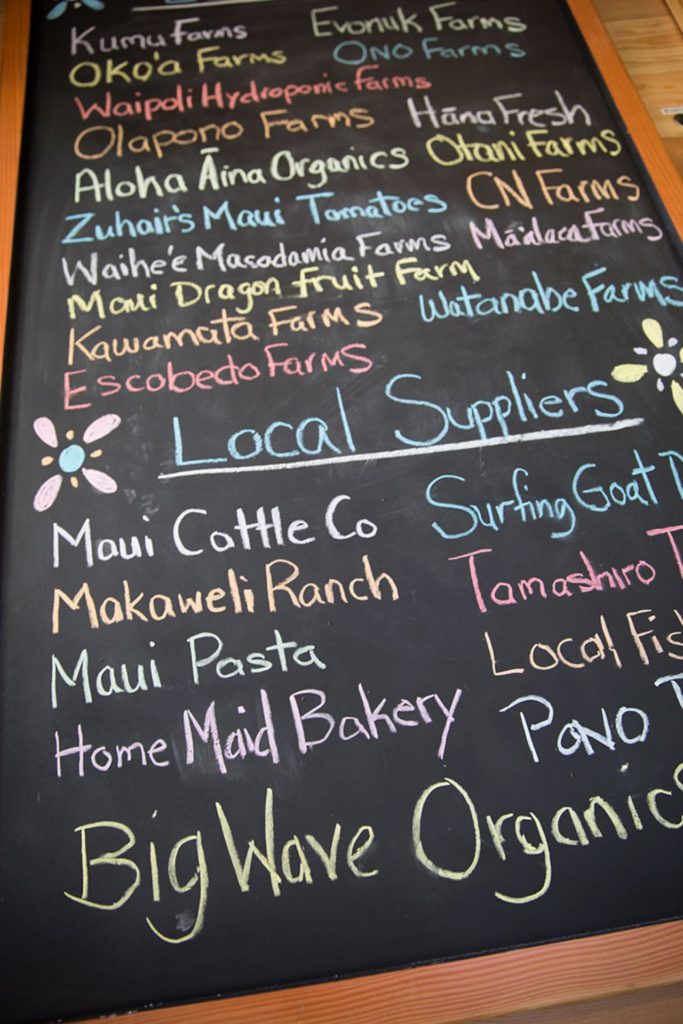NOTE: After the Hawai‘i Department of Health released new guidelines on produce-washing specific to preventing Rat Lungworm Disease, we produced an updated video called “Addressing Rat Lungworm Disease with New DOH Produce Washing Techniques,” to showcase those methods and provide links to helpful resources. #educationawarenessknowledge
Food safety matters to us at Fork & Salad. A lot. Not only because we’re in the food business, but we also truly care about our customers and our own families’ health. That’s why we use trusted local suppliers who take food safety as seriously as we do.
In light of health concerns like Rat Lungworm disease, with cases identified on Maui’s East side, we wanted to share the best practices in our kitchen to show you how we meticulously clean, soak, rinse and spin your greens as they come in by the case. We even scrub our kale! In this video, Chef Travis takes you through the steps of this very important and effective process using organic cleaning solution and a double-basin sink. Please take a look, since we want everyone to be as informed as possible.
You can implement similar methods in your own kitchen for produce you bring home. All you need is ice, water and a food-safe cleaning solution.
Our food safety procedures extend not just to greens — we also rinse every type of local produce we receive and include in our salads. This has always been, and continues to be, a priority for us.
Our trusted suppliers take this seriously as well. One of our largest, Kumu Farms in Waikapū, cleans its greens using the same two-step process that we do, BEFORE sending out any cases. We receive them and put our own cleaning procedures in action. Meaning, our spring mix and kale get washed a total of FOUR times before reaching you.
Here are some important points from Emanuela “Manu” VKumu Farms:
1) Kumu Farms production locations are in ARID areas of the Island. We are in dry environments where rainfall is minimal. Our areas are dry and dusty, we have never seen snails, slugs, or rats in our fields.
2) Freshly harvested produce is immediately dunk rinsed as it arrives at the packing house. Before it enters, it is heavy rinsed and put directly into our Chill Box / Refers.
3) As crew is packing, ALL greens and salad mixes are bathed in a county water solution that we have added an organically approved disinfectant to. This ensures cleanliness.
4) All greens and produce should ALWAYS be washed by the restaurant or consumer prior to serving or consumption. This has always been the final step in keeping your food clean and healthy.
Our romaine provider is Waipoli Hydroponic Greens in upper Kula, on the opposite side of the island to where the disease has been found. Waipoli’s growing methods, with lettuce heads netted and raised off the ground, provide unique advantages.
Owners say to date, the farm has NOT encountered the semi slug that’s been connected to Rat Lungworm cases. The commercial operation has had pest control programs in place since it started, focusing on all species of snails and slugs.
Geoff Haines with Waipoli shared this information with us:
“We have been aware of the potential health risks that snails and slugs present, and have had an ongoing control program in place for years. We are food safety-certified and all of our employees are trained to recognize and report any evidence of the presence of snails and slugs near our produce. We also have a rodent control program in place which we are constantly monitoring.
We have a food safety coordinator as well as a technician assigned to implement control measures.
Our growing tables are raised and supported by individual metal posts and the soil below them is covered with ground cloth. This makes it much easier to monitor for pest activity, and we apply snail and slug specific bait approved for agricultural use around each post at ground level for added protection.”
So this bears repeating: Waipoli has never encountered the semi-slug, and Kumu Farms has never seen slugs, snails or rats in its fields at all due to its climate! We know our farms are doing absolutely everything they can to make your health and safety the top priority. So are we. Let’s keep on working together to support our hard-working local farms, many who are small businesses being affected by the fear spreading on social media.
With any illness, you have a right to ask questions and voice concerns. But there’s also a responsibility to understand the issues and be fully informed; that’s why we wanted to address the topic of food safety head-on, continue to keep health at the forefront, and raise awareness about how we help protect our community. #EatLocalEatHealthy

